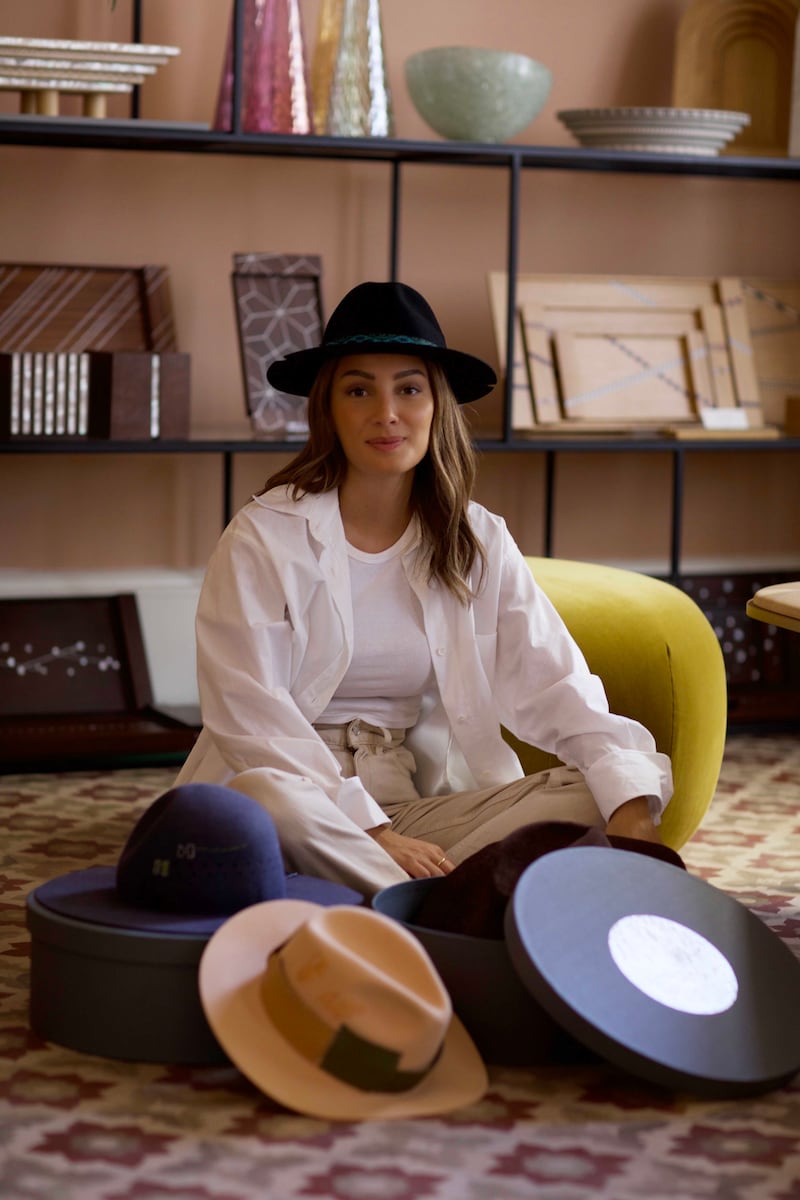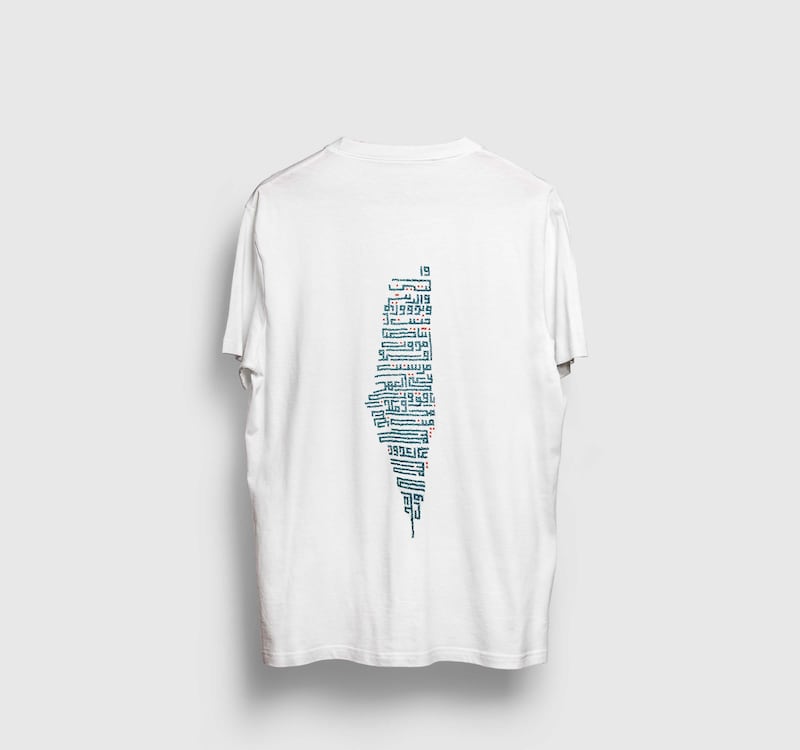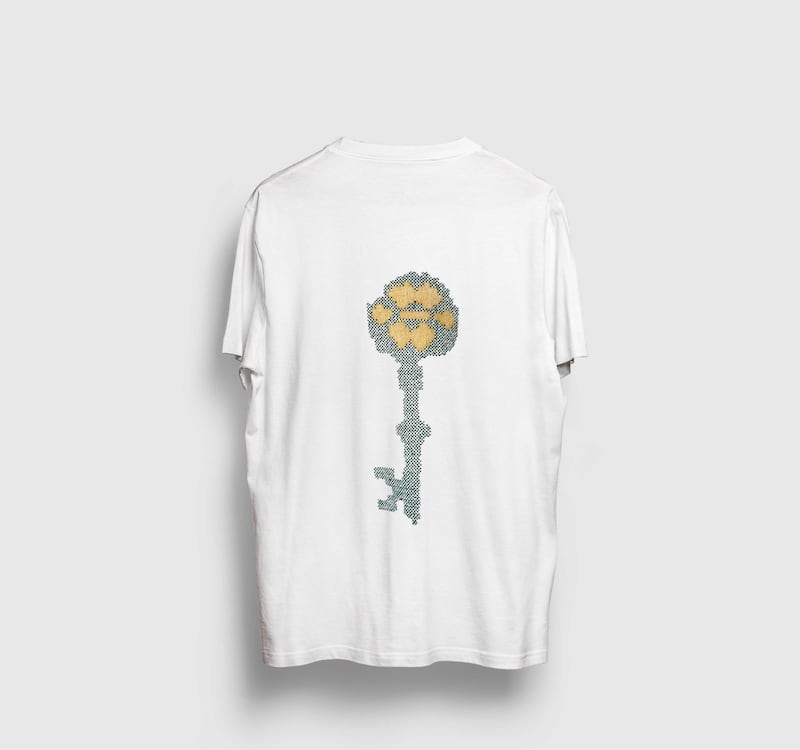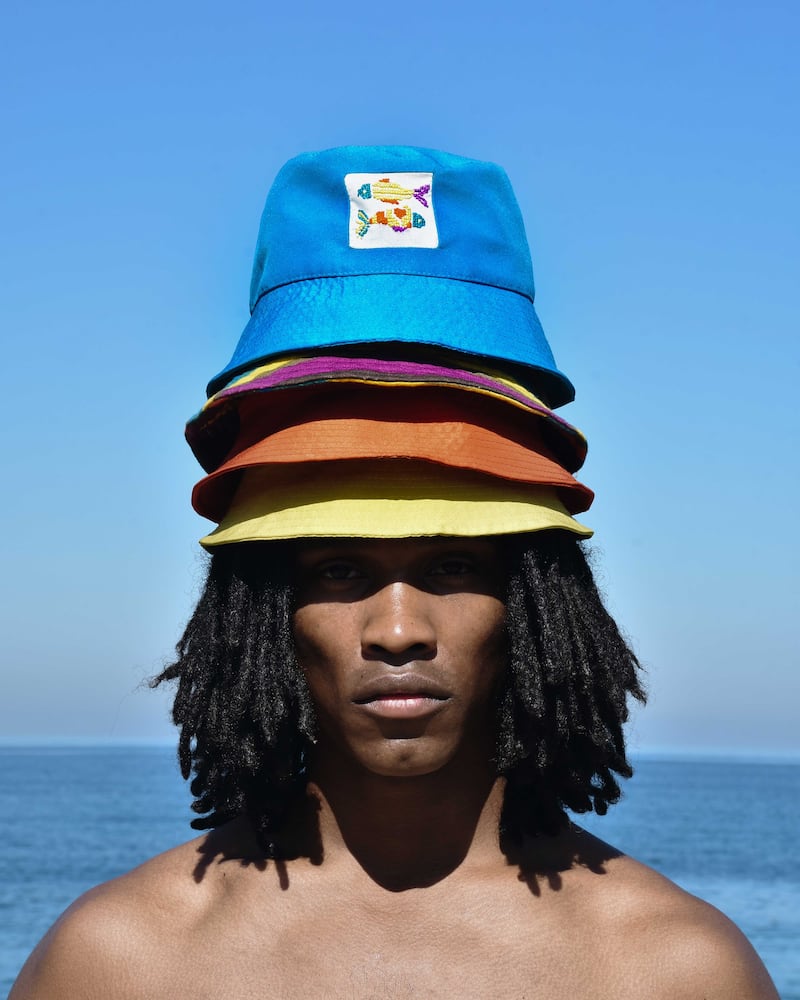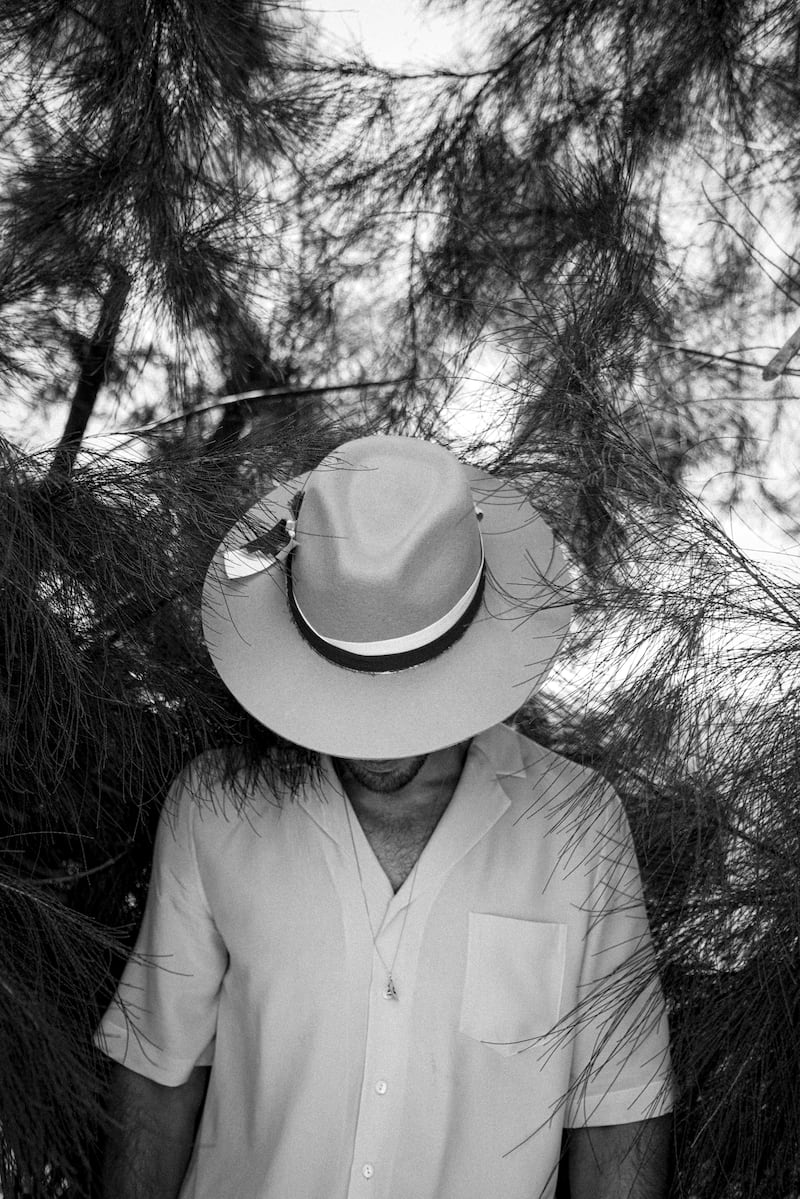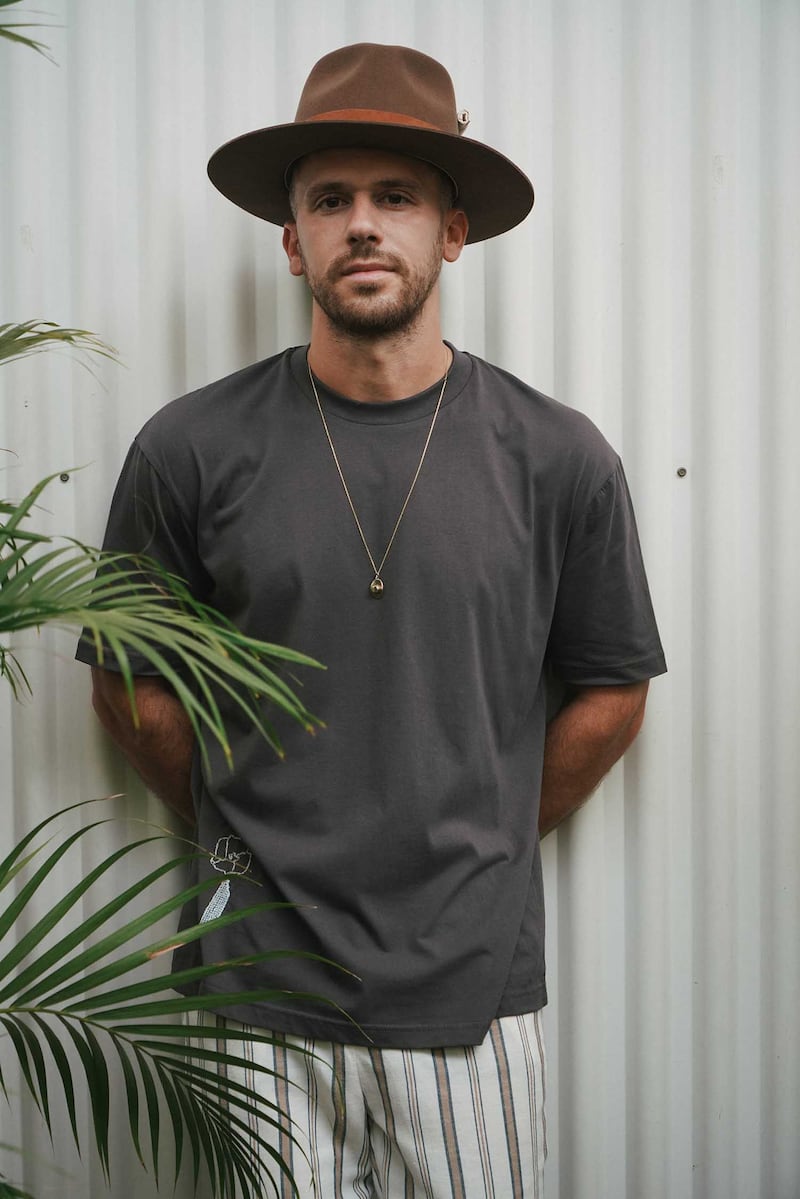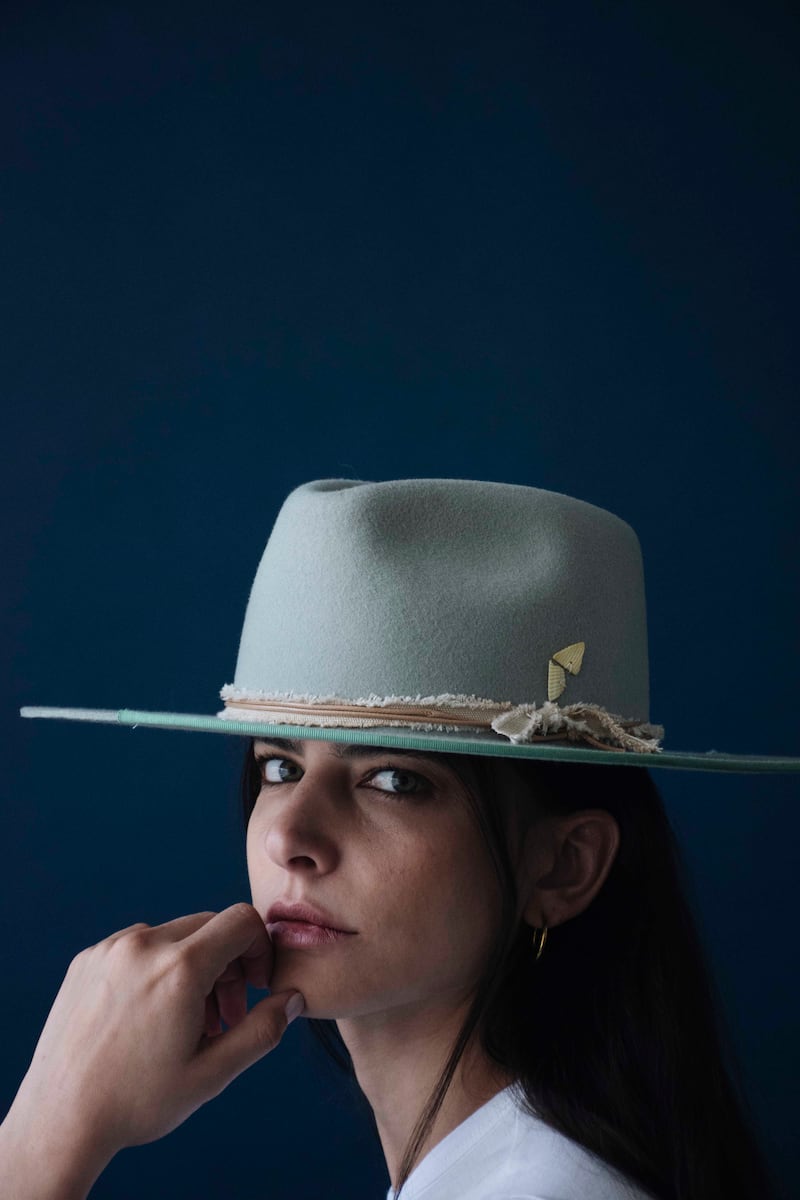Kinda Afifi was not yet born when her grandparents were displaced from their home in Palestine during the 1948 Nakba. The Arabic word for catastrophe has come to refer to the forced removal of at least 750,000 Palestinian families from their homes after the formation of Israel.
Still, the Lebanese-Palestinian designer, who lives in Dubai, has a depiction of her ancestors' house key, hand-stitched on the back of a T-shirt as part of It’s Called Palestine, her latest clothing collection.
The line was released in light of the ongoing war in Gaza and aims to show that the violent displacement and dispossession of Palestinians “has been going on for way too long”, Afifi tells The National.

The distinct embroidery on the We Will Return T-shirt and the powerful message it conveys are what make Kinda Afifi, both the label and the founder, stand out.
A stitch in time
Founded in 2019, the brand came to life as a means to support and empower Palestinian refugee women who are keeping their heritage alive through the traditional craft of cross-stitching. Afifi designs all her own pieces, which are then hand-sewn by a group of women in Lebanon’s largest refugee camp for Palestinians, Ain Al Hilweh.
Much like the symbolic Palestinian key of return, tatreez embroidery is also passed down from one generation to another.
In 2021, Unesco added the craft to its Intangible Cultural Heritage List, which was created to protect and safeguard traditional practices.
Historically, the cross-stitching technique has also been recognised as a means for Palestinian women to generate income and support their families – a challenge for the women of Ain Al Hilweh amid Lebanon’s economic crisis.
“The women living in the camp are very driven and very talented, but they don’t get equal opportunities,” Afifi says. “I wanted to shed light on their craft and the work they’re doing and to help them make a living.”
Fabric of time
Afifi has also created another T-shirt named From the River to the Sea. This features an outline of Palestine’s map drawn with Arabic calligraphy that reads: “Even if years were to pass, to this secure land, we will return, we will return”.
Her personal favourite is a newly released sweater named Love of the Land, which Afifi describes as a “masterpiece in a bag”.
“The back of the hoodie alone has 45,000 stitches,” she tells The National. “A lot of time, effort and soul went into creating this piece.”
Cut from the same cloth
Afifi says her drive to empower women comes from the empowering women in her life.
Her debut collection was a line of fedora hats with hand-embroidered designs that are equal parts stylish and sentimental, as they were created as a tribute to her late grandmothers.
“They remain a beacon of wisdom and love that constantly push my family to our highest potential,” says Afifi.
On one hat is a hand-stitched quote by Maya Angelou that reads: "I've learned that people will forget what you said, people will forget what you did, but people will never forget how you made them feel".
Another hat, named Free Spirit, is hand-embroidered with a minimal trail detail, and has a soft wide brim with an abstract and bold colour double band.
Kinda Afifi is now an established luxury streetwear brand. As the orders began to come in, the designer and creative director expanded her product range to include swimwear, shirts, scarves and more headpieces – all with that distinct embroidery carrying messages of hope, power, love and belonging.
She says her latest line is her boldest yet, designed with a note of resilience in the hope of shedding light on the violence unfolding in Gaza.
In line with the brand’s mission, the sweater and T-shirts are all meant to empower and give back to the Palestinian community. All proceeds from the It’s Called Palestine collection are being donated to help the people of Gaza.
“I’m trying to raise awareness and speak out as much as I can, but it’s been really tough,” says Afifi. “You try to do as much as possible, but it still doesn’t feel enough.”
